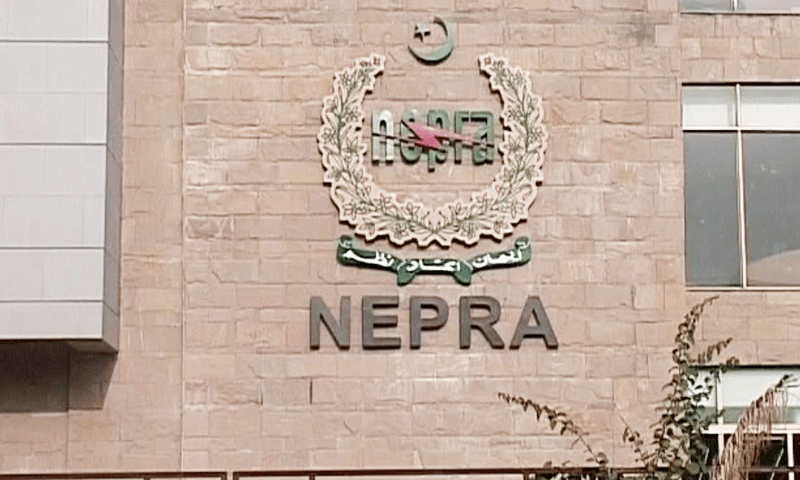ISLAMABAD: Days after ordering a probe into the record fuel cost adjustment (FCA) demanded by distribution companies, the power regulator approved the hike, which will put an additional strain of Rs55 billion on electricity users.
In a remarkable turnaround on its proclamations, the National Electric Power Regulatory Authority (Nepra) notified the additional fuel cost adjustment (FCA) of Rs7.06 per unit on Monday.
The amount will be charged from consumers of ex-Wapda distribution companies (Discos) for electricity consumed in January.
Last week, the Discos sought an FCA of Rs7.13. Astonished by the demand, the regulator announced an investigation and said no decision would be made until the probe was concluded.
Defers probe into Discos’ performance till after Ramazan
According to sources, the government warned the regulator that such a route would create cash flow problems for the discos and affect performance benchmarks committed to the International Monetary Fund (IMF) at a crucial time.
Nepra was reportedly asked to follow the routine of timely judgments over FCA demands and defer the probe.
Subsequently, the regulator gave in and postponed the inquiry until after Ramazan.
A Nepra notification stated that the additional cost of Rs7.056 will be applicable to all consumer categories except Electric Vehicle Charging Stations (EVCS) and lifeline consumers.
“The said adjustment shall be shown separately in the consumers’ bills on the basis of units billed to the consumers in the month of January 2024 and reflect in the billing month of March 2024,” the document added.
According to the calculation, the FCA will yield about Rs55bn in additional funds to the Discos.
The Discos, through the Central Power Purchasing Agency (CPPA), demanded an additional FCA of Rs7.13 per unit for the electricity consumed in January.
The CPPA claimed that the fuel cost for January was set at Rs7.49 per unit, but the actual cost was Rs14.62.
In its notification, the power sector regulator reiterated that it had taken “strict notice” of the public concern over “the enormous increase in the fuel cost” and had “decided to initiate an investigation to ascertain the reasons”.
“The Authority has further decided to evaluate the performance of each Disco individually after the month of Ramazan on whether any violation … has been committed.”
The power regulator said a notice for the probe and appointment of investigation officers would be issued later.
During a hearing on Friday, Nepra Chairman Waseem Mukhtar and member tariff Rafique Shaikh wondered why the Discos sought such a massive increase in tariff when there had been no change in fuel price and exchange rate and despite an average eight-hour loadshedding.
“We also have to face our conscience”, Mr Mukhtar said during the meeting and said the regulator can’t allow whatever costs the power companies want to charge consumers. “Nepra should not be considered a rubber stamp”.
Highest ever FCA
The Rs7.06 per unit FCA is the highest ever and almost 96pc higher than the pre-fixed fuel cost of Rs7.50 per unit already charged to consumers in January.
This calls into question the capabilities of the power sector bureaucracy to forecast fuel costs even for a six to seven-month period.
These charges are on top of around 26pc increase in annual base tariff and another 18pc hike under quarterly tariff adjustment already in place.
As a result, consumers continue to pay excessive bills despite minimum consumption in peak winter months.
‘No accountability’
As it signed off the record FCA, Nepra also released discos’ performance evaluation report for FY2022-23.
The document lists a litany of shortcomings but carries no mention of any accountability of Discos or their management and staff.
The Nepra said it would also issue “certain directives” to each Disco and grid operator to be placed before their boards of directors for approval of a viable plan to improve their performance and ensure compliance with targets and benchmarks.
It also directed the energy ministry to submit the Power Purchase Price forecast and Discos to file their annual indexation/adjustment request for FY2024-25.
It also asked the ministry for a proposal to address the issues of system stability, South-North evacuation and system constraints, among other issues, to increase electricity demand that had plummeted due to unaffordable tariffs.It noted that the grid operator — National Transmission and Despatch Company — attributed high fuel cost to higher utilisation of thermal power plants “not because of any system constraints but to ensure system stability and reliability, owing to unprecedented weather conditions, very low demand and south-north evacuation issues”.
Published in Dawn, February 27th, 2024







